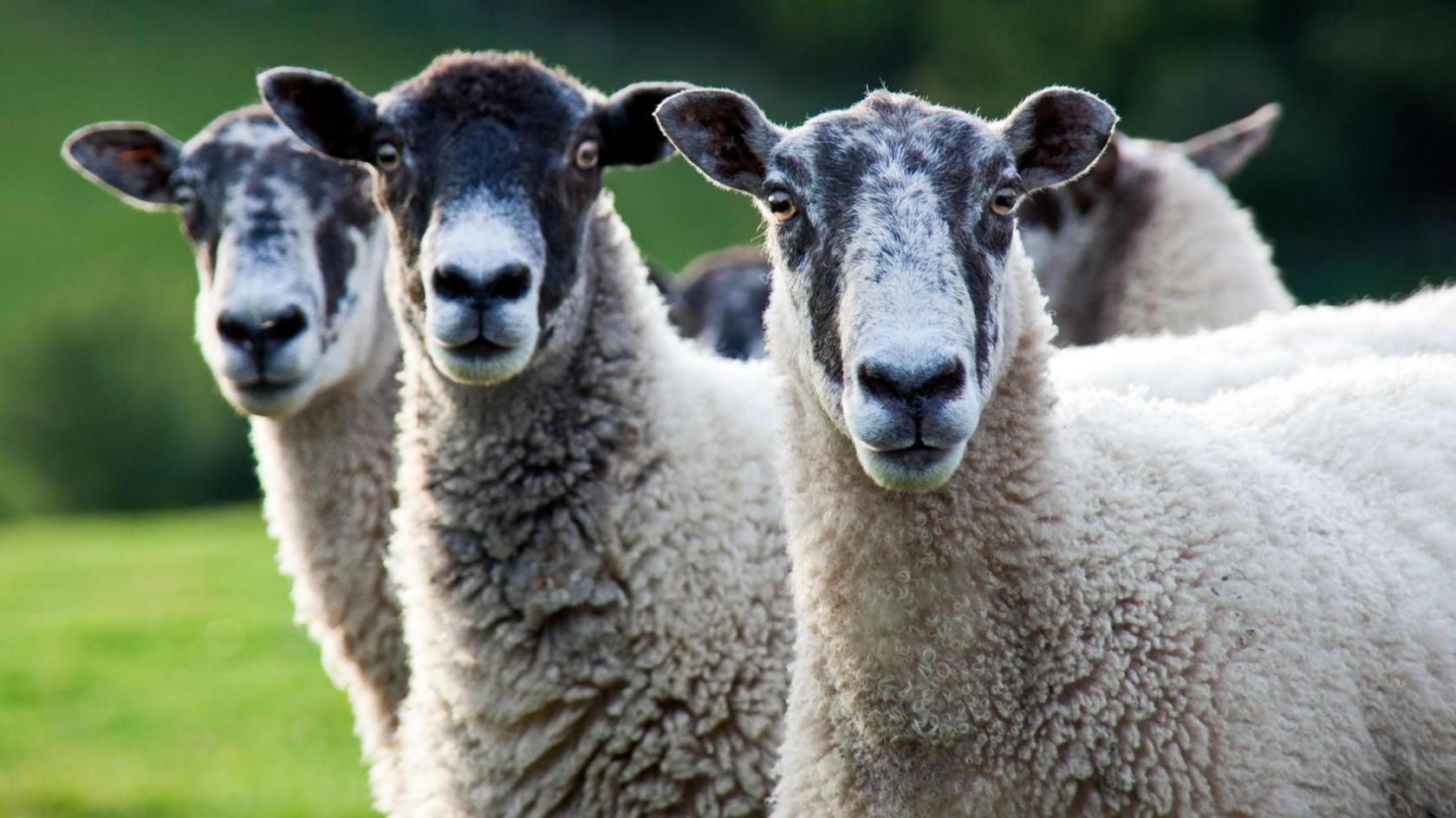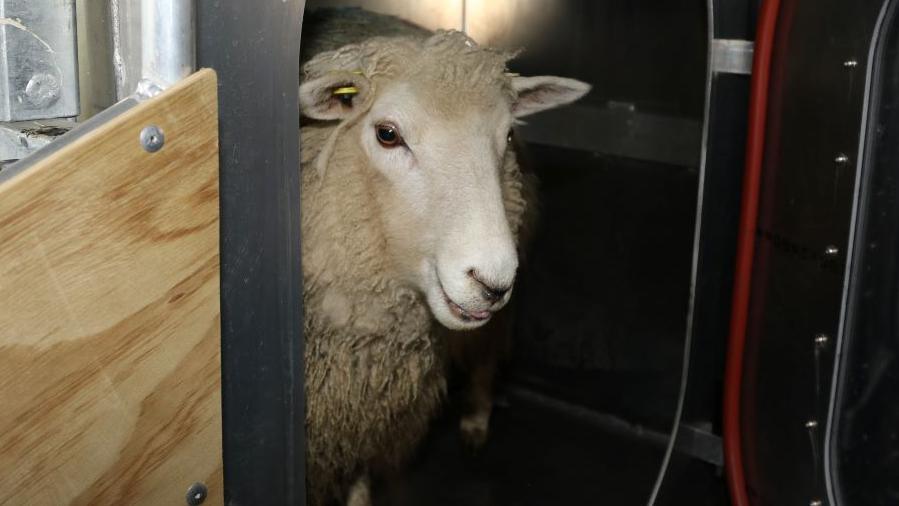Sheep methane emissions testing 'a UK first'

At a glance
Scientists hope new testing equipment will help tackle methane emissions from sheep
Methane is a harmful greenhouse gas
Scotland's Rural College have been using a portable chamber for the first time in the UK
The equipment allows scientists to analyse emissions from sheep, and spot which genetics and feed produces the highest concentrations
- Published
Scottish scientists have been using mobile testing equipment to measure greenhouse gas emissions from sheep.
Scotland's Rural College (SRUC) said it was the first time the New Zealand-designed portable accumulation chambers (Pacs) had been used in the UK.
The equipment helps scientists visit farms and analyse methane concentrations from sheep to identify which of their genetics and feed produce the highest emission levels.
SRUC's Dr Nicola Lambe said there was an urgent need to mitigate greenhouse gas emissions from sheep.
'Carbon-zero sheep'
The scientist said there were an estimated 1.2 billion sheep in the world producing about seven million tonnes of methane into the atmosphere.
Edinburgh-based SRUC's research could help find solutions to reducing the animals' carbon footprint.
Dr Lambe said: “Despite the fact resource efficiency and greenhouse gas emissions are global priorities, there are few examples around the world of research to implement breeding strategies to directly tackle these issues in sheep.
“This is largely due to the difficulty in recording feed consumption and greenhouse gas emissions on an individual animal basis, especially in grass-based systems."
Rob Hodgkins, who farms 2,500 in Hertfordshire, was involved in the first use of the trailer-mounted Pacs.
He said: "It will only be a matter of time before consumers will be able to look at labels on packets of meat that shows what they’re buying has come from, for example, a carbon-zero sheep.”

A sheep inside the mobile testing chamber
The UK government announced plans last month which could see cattle being given special products to help limit the amount of methane they produce.
The announcement formed part of wider UK proposals on how to meet climate targets.
Earlier this year, billionaire and Microsoft co-founder Bill Gates invested in an Australian climate technology start-up trying to reduce the methane emissions of cow burps.
Methane is the most common greenhouse gas after carbon dioxide (CO2).
Livestock such as cows, sheep and deer produce methane when their stomachs are breaking down hard fibres like grass for digestion.
This fermentation process creates methane gas which is then mostly belched out again.